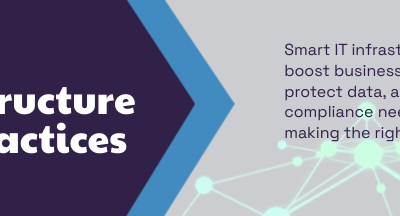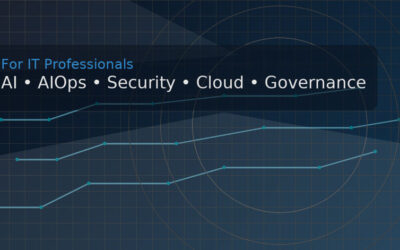Becoming an IT professional is a path filled with opportunity, flexibility, and constant learning. It’s a field that’s not only in high demand but also one that offers a dynamic environment where new technologies and challenges emerge regularly. This constant evolution means that IT professionals are always expanding their skill sets and adapting to the latest trends, ensuring their careers remain engaging and rewarding.
But one of the most common questions asked by those considering a career in information technology is, “How long will it take?” This isn’t a simple question with a single, straightforward answer. The timeline for becoming an IT professional, like much of the IT industry itself, depends on a multitude of interconnected factors. These include your chosen educational path, the specific area of IT you wish to specialize in, your prior experience level, the certifications you pursue, and crucially, your personal dedication and commitment to continuous learning. Each of these elements plays a significant role in shaping the journey from aspiring enthusiast to seasoned IT professional.
What Does “IT Professional” Really Mean?
Before discussing how long it takes, it’s important to define what we mean by “IT professional.” The field of information technology is vast. It includes a range of job roles such as:
- Help Desk Technician
- Network Administrator
- Systems Analyst
- Cybersecurity Analyst
- Database Administrator
- Cloud Engineer
- IT Project Manager
- Software Developer (in some contexts)
- DevOps Engineer
Each of these roles requires a unique combination of technical knowledge, experience, and in some cases, formal education or certifications. As a result, the timeline to become an IT professional varies significantly based on the role you’re targeting.
Key Factors That Determine the Time Required
1. Educational Pathway
- Self-Taught (6 Months to 2 Years)
Many people enter the IT field without a traditional college degree. Thanks to free online resources, bootcamps, and open-source platforms, it’s possible to build a solid foundation in areas like computer hardware, basic networking, operating systems, and even coding.
Timeframe:
- Entry-level roles (like Help Desk or Tech Support): 6 months to 1 year with consistent study and practice
- More advanced roles (like Network Admin, Junior Developer): 1–2 years with hands-on projects and certifications
- Associate Degree (2 Years)
An associate degree in Information Technology, Computer Science, or a related field can equip students with broad technical skills and a credential that employers value.
Timeframe:
- 2 years full-time
- Faster for those who transfer credits or attend accelerated programs
- Bachelor’s Degree (4 Years)
A bachelor’s degree is a common pathway and provides a comprehensive understanding of both theory and practical skills.
Timeframe:
- 4 years full-time
- 3 years if attending an accelerated program or transferring in college credits
- Master’s Degree (1–2 Additional Years)
For more specialized roles or advancement into leadership, a master’s degree in IT, cybersecurity, or data analytics may be helpful.
Timeframe:
- 1 to 2 years post-bachelor’s
2. Certifications and Specializations
Certifications often carry significant weight in IT hiring decisions. They can serve as fast-track alternatives to college degrees or complement existing experience.
Popular IT Certifications and Typical Preparation Time:
-
CompTIA A+
-
Focus Area: Hardware, troubleshooting
-
Average Study Time: 3–6 months
-
Level: Entry
-
-
CompTIA Network+
-
Focus Area: Networking basics
-
Average Study Time: 2–4 months
-
Level: Entry
-
-
CompTIA Security+
-
Focus Area: Cybersecurity
-
Average Study Time: 3–6 months
-
Level: Entry
-
-
Cisco CCNA
-
Focus Area: Networking
-
Average Study Time: 3–6 months
-
Level: Intermediate
-
-
AWS Certified Solutions Architect
-
Focus Area: Cloud computing
-
Average Study Time: 4–6 months
-
Level: Intermediate
-
-
Microsoft Certified: Azure Fundamentals
-
Focus Area: Cloud computing
-
Average Study Time: 1–3 months
-
Level: Entry
-
-
Certified Ethical Hacker (CEH)
-
Focus Area: Cybersecurity
-
Average Study Time: 6–12 months
-
Level: Advanced
-
-
PMP (Project Management Professional)
-
Focus Area: Project Management
-
Average Study Time: 6–12 months
-
Level: Advanced
-
The more focused your goals are, the faster your progress can be. Someone targeting a cloud-related role may choose to focus entirely on AWS or Azure certifications rather than pursuing broad education first.
3. Experience and Hands-On Learning
You don’t become an IT professional by reading alone. Employers seek candidates with practical experience—troubleshooting systems, deploying networks, writing scripts, or managing databases.
Ways to Gain Experience:
- Internships (3–6 months)
- Entry-level jobs (Help Desk, IT Support)
- Freelance or personal tech projects
- Lab environments and virtual machines
- Volunteer tech support for nonprofits
Typical Time to Gain Experience for Entry-Level Jobs:
- With certification or associate degree: 6–12 months
- With bachelor’s degree: Often eligible for internships during school, leading to immediate job opportunities post-graduation
Career Timelines by Role
Let’s break it down further by job type. Here’s how long it typically takes to become job-ready for each role:
1. Help Desk Technician / IT Support Specialist
This is the fastest way into IT and a common starting point.
Timeframe:
- 3 to 12 months with a certification like CompTIA A+ or Google IT Support
- No degree necessary but helpful
2. Network Administrator
Requires solid understanding of networking, usually through certifications and hands-on practice.
Timeframe:
- 1–2 years with CompTIA Network+, Cisco CCNA, and lab practice
- Associate or bachelor’s degree can accelerate this
3. Cybersecurity Analyst
An in-demand role with growing complexity.
Timeframe:
- 1.5–3 years with certifications like Security+, CySA+, and hands-on experience
- Bachelor’s degree often preferred, but not always required
4. Cloud Engineer
Requires knowledge of platforms like AWS, Azure, or Google Cloud.
Timeframe:
- 1–2 years with cloud-specific certs and project experience
- Bachelor’s degree or related experience is useful
5. Database Administrator
Often requires a foundation in database architecture, SQL, and security.
Timeframe:
- 2–4 years depending on degree and experience level
- Microsoft or Oracle certifications can shorten the timeline
6. IT Project Manager
More focused on planning, budgeting, and managing IT tasks. Often filled by experienced professionals.
Timeframe:
- 4–6 years (including bachelor’s degree + project experience)
- PMP certification boosts credibility
Career Switchers: How Long Does It Take?
For those changing careers from unrelated fields, the learning curve can be steep, but not insurmountable. Many career switchers follow this path:
- 3–6 months: Self-study and certification prep (CompTIA, AWS, Google)
- 6–12 months: Gain hands-on practice through labs, projects, or freelancing
- 1–2 years: Secure entry-level position and gain experience
With focus and consistency, many people transition into IT roles within 1 to 2 years.
Bootcamp Routes (3 to 9 Months)
Tech bootcamps offer intensive, fast-paced programs aimed at helping people break into the industry quickly. They often include:
- Coding and scripting (Python, JavaScript, PowerShell)
- Networking and security fundamentals
- Hands-on labs and portfolio development
- Interview prep and resume guidance
Graduates can qualify for roles such as:
- Junior Developer
- Cloud Support Associate
- Security Analyst
- Technical Support Engineer
Caveat: The speed of bootcamps means that continued learning is often necessary after the program ends.
Lifelong Learning and Career Growth
Even after landing your first IT job, the journey doesn’t stop. Technology changes rapidly, and staying relevant requires continual learning. IT professionals often spend time each year on:
- Earning new certifications
- Attending webinars and conferences
- Learning new tools, scripting languages, or frameworks
- Contributing to open-source projects or forums
In this sense, becoming an IT professional isn’t just a one-time milestone—it’s a continuous process.
Final Thoughts
The time it takes to become an IT professional depends largely on the route you choose and the dedication you apply. Some roles are accessible within six months, while others require several years of training and experience. The good news is that there’s no one-size-fits-all timeline. Whether you’re looking for a quick entry into tech support or aiming to become a cloud architect or cybersecurity expert, the IT industry offers multiple on-ramps for people from all backgrounds.
If you’re just starting, set realistic expectations, pick a specialization that aligns with your strengths, and focus on gaining practical experience. With consistent effort, you can build a rewarding career in IT—and the timeline might be shorter than you think.






